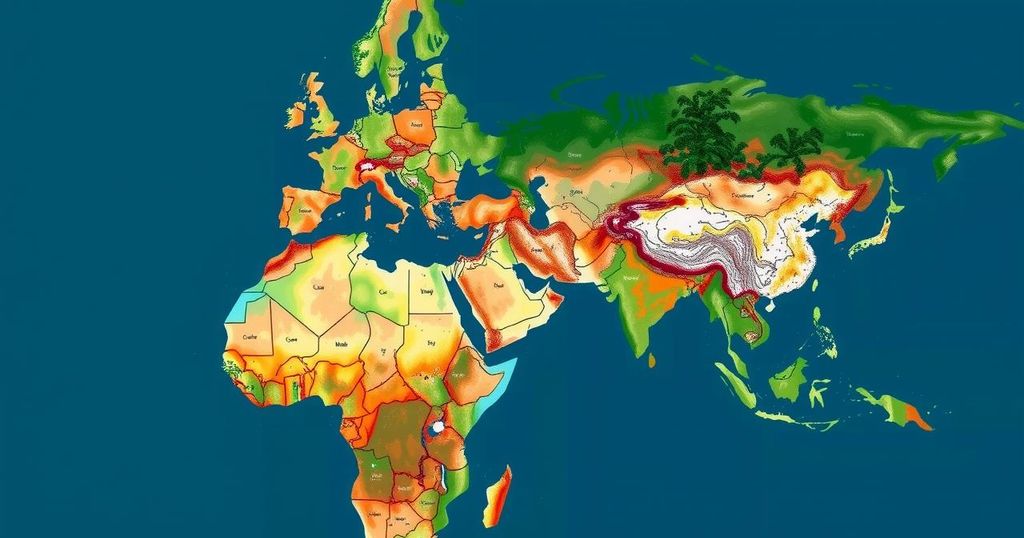A U.N. report indicates that developing nations are facing a climate adaptation financing gap, needing $359 billion annually while currently only receiving $28 billion. The upcoming COP29 summit will emphasize the need for increased commitments from developed countries to aid climate resiliency efforts in vulnerable regions. The adverse effects of climate change are already evident, calling for immediate and serious adaptation measures.
The most recent United Nations report reveals a daunting shortfall in financial aid allocated to help developing nations adapt to climate change, with the current funding of $28 billion in 2022 falling significantly short of the $359 billion annually required. This gap persists despite the largest annual increase in funding since the Paris Agreement of 2015. As global leaders prepare for upcoming climate negotiations in Azerbaijan, the allocation of financial resources to these vulnerable countries will be a central topic of discussion, especially in light of recent climate-induced disasters such as floods and droughts impacting various regions around the world. UNEP Executive Director Inger Andersen has underscored the urgency of the situation, stating that climate change is already wreaking havoc on the most disadvantaged communities through extreme weather events that devastate homes and landscapes. He further emphasized the importance of immediate action, warning that neglecting adaptation now could lead to dire consequences in the future. Adaptation financing is essential for initiatives such as constructing flood defenses and enhancing urban forestry to combat heat waves, necessitating both adequate funding and strategic guidance for effective implementation.
The financial obligations of developed countries to assist developing nations in adapting to climate change are critical, given that insufficient funding can exacerbate vulnerabilities. The U.N. has indicated that the annual need of $359 billion starkly contrasts with the actual financial aid currently provided. This deficiency poses significant threats to efforts aimed at climate resilience, especially for nations already experiencing considerable challenges due to extreme weather patterns. As discussions unfold at the COP29 summit, strategies for improving this financial landscape will be pivotal for global climate action.
The U.N. report paints a concerning picture of the financing gap in climate adaptation for developing countries, which is critical as global leaders convene at COP29 to address these issues. The urgent need for increased financial support, along with effective strategy implementation, highlights the complex challenges faced amidst escalating climate change impacts. Moving forward, it is imperative that developed nations commit to providing the necessary financial resources and guidance to assist in mitigating these challenges.
Original Source: www.swissinfo.ch






